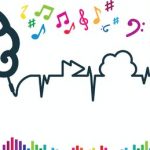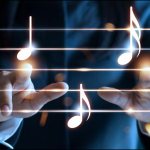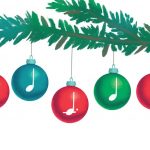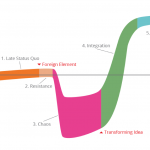A very common question among many middle-agers and retirees is if they are too old to begin to learn an instrument. They hear aphorisms such as What won’t bend at five won’t bend at fifty; or, You can’t teach an old dog new tricks, etc. Is there really an upper age limit or can anyone learn to play music at any age? Are there some instruments that are easier to take up than others? Is Bollywood (or pop) music easier to learn than Classical as we get older? Can someone start late even if they never learnt sight reading in their childhood? In this blog we try to answer these questions and show why age is just a number when it comes to learning to play music.
Before we answer specific questions let us try to understand three enablers for learning a musical instrument at a later stage in life:
- Time: there is more expendable time; especially among older office goers and retirees there is more time to spend on personal interests
- Money: there is more expendable money; especially if one has been making a living as a working professional
- Desire: for many, learning to play a guitar or piano or drums is on their dream list; the urgency of their desire increases as they get older!
To learn to play music it is sufficient if one has just a little bit of all three: some time to devote to learning and practice; some money to buy equipment and take lessons from a teacher; and some desire to do good for themselves and others by (hopefully) playing good music!
So, assuming the enablers are working, let us look at the potential challenges for starting to learn to play an instrument when one is older:
- Physiological considerations
Playing an instrument such as a guitar, a piano, drums or even horns requires hand strength, dexterity, hand-eye coordination and decently working eyes and ears.
According to several studies (e.g. https://www.ncbi.nlm.nih.gov/pmc/articles/PMC4331509/ ) hand dexterity and grip strength does decrease with age. However, the studies also show that dexterity and strength can actually be improved by doing the very things that require them!
It is no wonder we see musicians performing well into their sixties, seventies and even eighties! Check out the ages of famous performers from Shivkumar Sharma to Hariprasad Chaurasia in the East; from John McLaughlin to Carlos Santana in the West; and you will be surprised to see that age is surely not slowing them down! It is clear that age is not a deterrent and starting to play an instrument ,however late, may actually be very beneficial for the body
- Senses and cognitive faculties
Listening to music is mostly an auditory experience; but playing an instrument does require the ability to see well (so one can read music notation off a sheet), hear well (so one can distinguish musical notes with ears) and do math well (no that is not required; but mental alertness is: just checking!).

As with physiological abilities, the senses and cognitive faculties do weaken with age but that can be dramatically slowed by learning to play an instrument: there is strong scientific evidence that support this. In many countries there are specialized programs for seniors to begin their musical journey with an instrument of their choice to help maintain/improve their cognitive faculties and enjoy a high quality of life!
Now that we are convinced that age does not impose physical or mental constraints for playing a musical instrument let us try to answer the other questions we raised in the beginning:
A. Which are the easiest musical instruments to learn for adults?
Your choice should really be the instrument of your dreams and your access to a good teacher! While each instrument poses a different set of challenges, if you have a strong desire to play that instrument and give yourself enough time, you will make remarkable progress. A good teacher will show you how learning an instrument involves “body learning”: how your limbs, muscles, nerves and brain all respond to what you are making them to do. The more they are able to relax the better your playing become. If you have no strong preference for an instrument then the following comparisons can help you to explore: violin has a steeper learning curve than a guitar; guitar is harder to start than a piano (but gets easier than piano over time); alto sax is easier then a trumpet; bongos are easier than drums; and tabla is hard no matter what!

B. Is classical harder to learn than Bollywood or pop?
This one is a bit easier to answer with a question: what type of music did you grow up listening to?! This makes your recall of the songs/compositions easier and you already are familiar with the structure of the music. In Western music there is an universal notation system that allows any piece of music to be written down so any one can read it can play it (reasonably well). In Indian music while the written system is not universal there are well accepted conventions that will allow you to interpret an existing song or composition. Reading slowly is the key – the neurons have to get wired first.
C. Is it better to have learned to sight read when one was young?
Learning anything new does slow down as we age but new studies have overthrown myths such as there is loss of 40% of neurons by middle age. In fact they show the brain continues to adapt if the sufficiently challenged. Unlike learning language, sight reading is a more holistic activity (as you will also be playing at the same time) that involves multiple parts of the brain simultaneously. So yes if you learned a bit of sight reading when you were very young then it will come back pretty quickly when you restart at a much later date. But if not no worry; by using good techniques and with help of a good teacher you can also hear the music you read, just like your favorite composers!
So when was the last time you did something for the first time? What are you waiting for?
Download the Manoke App to help you practice until you make perfect!






